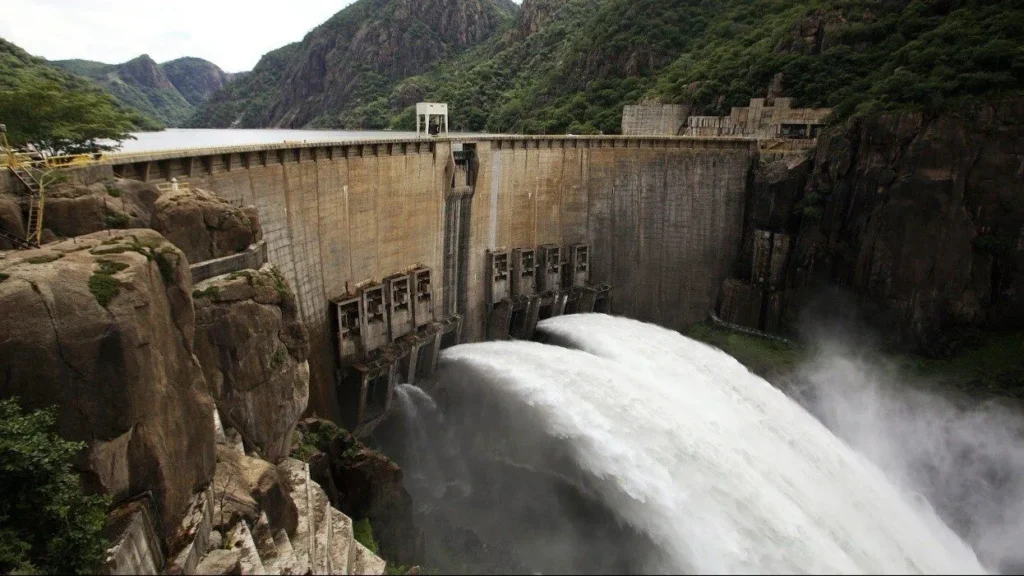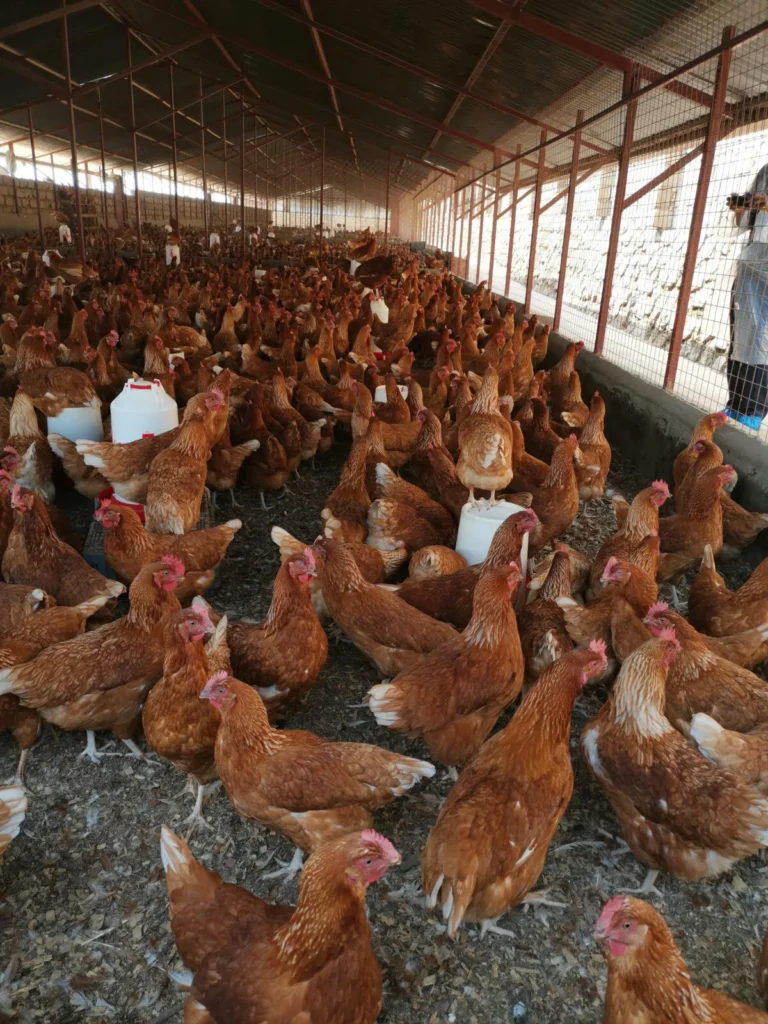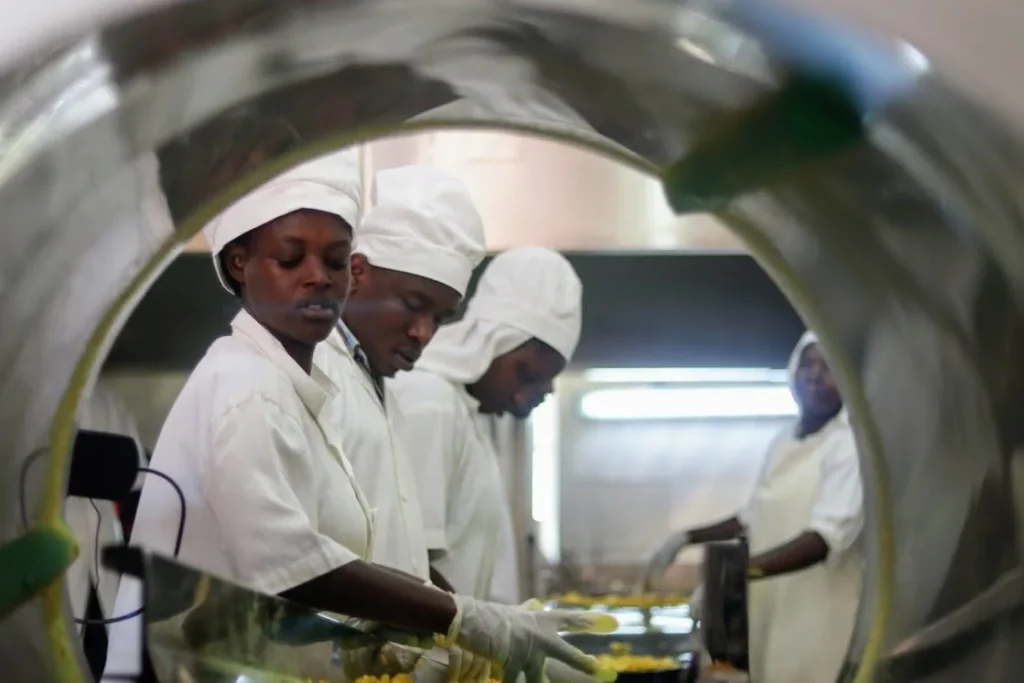A more resilient future for smallholder avocado farmers in Rwanda: Harnessing Avocado Resources for Value Enhancement and Sustainability Transformation (HARVEST)
Rwanda’s Avocado Sector: Challenges and Opportunities for Sustainable Growth Avocado farming has become an important source of income for smallholder farmers across Rwanda. Yet, while avocados are grown throughout the country, the benefits for farmers remain limited. Post-harvest losses are high, with much of the fruit spoiling before sales. Many farmers lack access to reliable…
Read MoreDigital Transformation in Rwanda’s TVET Sector: CREATE Project Approach
The Rwanda TVET Board (RTB), established under the Ministry of Education, is responsible for promoting Technical and Vocational Education and Training (TVET). RTB aims to provide comprehensive, locally curated resources to its students. TVET is recognized within the National Strategic Plan in Rwanda as essential for economic growth. The TVET sector is targeted to generate…
Read MoreRevolutionizing Clean Cooking in Rwanda: Partners in Pellets
TRAIDE Rwanda, supported by the Dutch embassy, conducted a comprehensive study of Rwanda’s cooking landscape. The findings revealed that in Rwanda, traditional biomass remains the primary source of cooking for 98% of households. This dependence has threatening consequences for health, the economy, and the environment. Indoor air pollution from cooking fires excessively harms women and…
Read MoreStrengthening Rwanda’s Potato Farming with High-Quality Seeds: Potato Impact Alliance
Rwandan farmers struggle to produce high-quality ware potatoes, suitable for processing or market sale. This issue stems largely from the use of poor-quality seeds. Ideally, farmers need a steady supply of good seeds with varieties suited to the local climate and resistant to disease. To achieve the desired quantity and quality of seeds, seed multiplication…
Read MoreResponsible Business Conduct: Positive Impact of Dutch Private Sector Engagement in Rwanda
Dutch private sector engagement in Rwanda, as revealed by the Responsible Business Conduct(RBC) survey, has had a positive impact on the country’s economy and workforce. Seventeen Dutch organizations participating in the survey have collectively generated 4,529 jobs, with 56.6% held by men and 43.4% by women. These jobs are predominantly permanent, contributing to stability and…
Read MoreCapitalizing on Rwanda’s Fintech Potential: Insights into a Rapidly Evolving Sector
Rwanda’s fintech sector is rapidly gaining momentum, fueled by high mobile money adoption, forward-thinking regulation, and a government committed to digital transformation. With 4G coverage reaching 96.6% and internet bandwidth increasing tenfold between 2015 and 2019, the country has laid a solid digital foundation. A 7,000 km national fibre optic backbone further strengthens connectivity, positioning…
Read MoreOpen and close a business in Rwanda
Registering a business in Rwanda is generally hassle-free for (foreign) entrepreneurs, with fast registration being a notable advantage, often taking less than 24 hours. Rwanda distinguishes itself with its ease of registration and a business-friendly environment, setting it apart from many other African countries and earning high rankings on ‘Ease of doing business’ lists. However,…
Read MoreRwanda Energy Sector: Powering growth through innovation and renewable solutions
As Rwanda shifts from aid to trade, it is increasingly positioning energy as a key enabler of sustainable economic development. With a population of over 12 million, 80% of whom live in rural areas, the country presents unique challenges and huge potential for investors in both on-grid and off-grid solutions. Energy access in Rwanda: Bridging…
Read MoreRwanda Poultry Sector: Growing Demand and Opportunities
Rwanda’s poultry sector is undergoing rapid transformation, fueled by rising domestic demand, export potential, and supportive government policies. As more Rwandans adopt healthier diets, there is a noticeable shift toward white meat, especially chicken, contributing to increased consumption and production. In 2020, Rwanda produced around 38,845 metric tons of chicken meat and 8,272 metric tons…
Read MoreDutch Private Sector Contributions to Rwanda: Insights from the Responsible Business Conduct (RBC) Survey
The latest Responsible Business Conduct (RBC) survey highlights the positive influence of Dutch private sector engagement in Rwanda. Seventeen Dutch organizations that participated in the survey have collectively created 4,529 jobs, directly contributing to Rwanda’s economic development and the well-being of its workforce. Of these jobs, 56.6% are held by men and 43.4% by women,…
Read More








